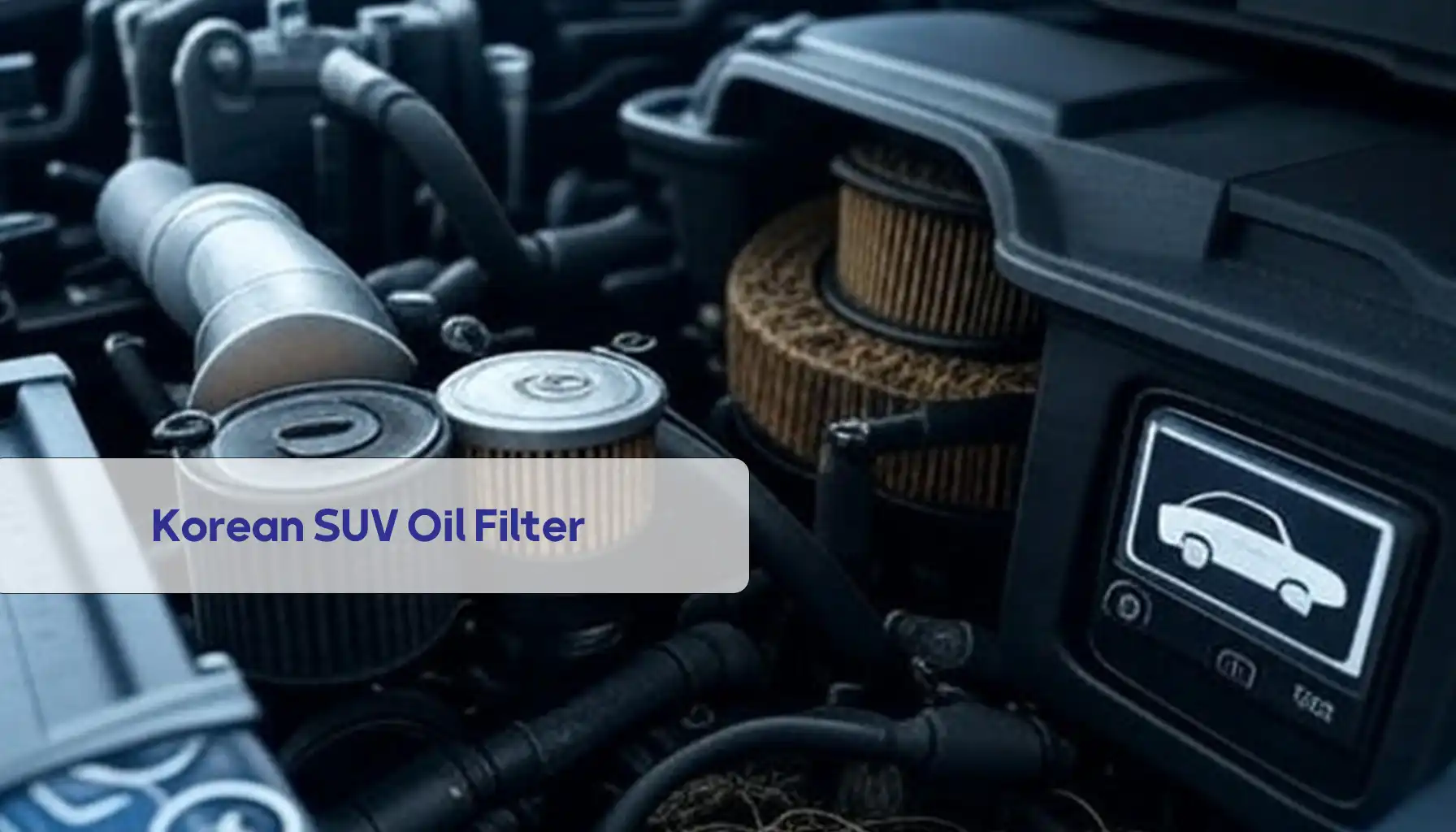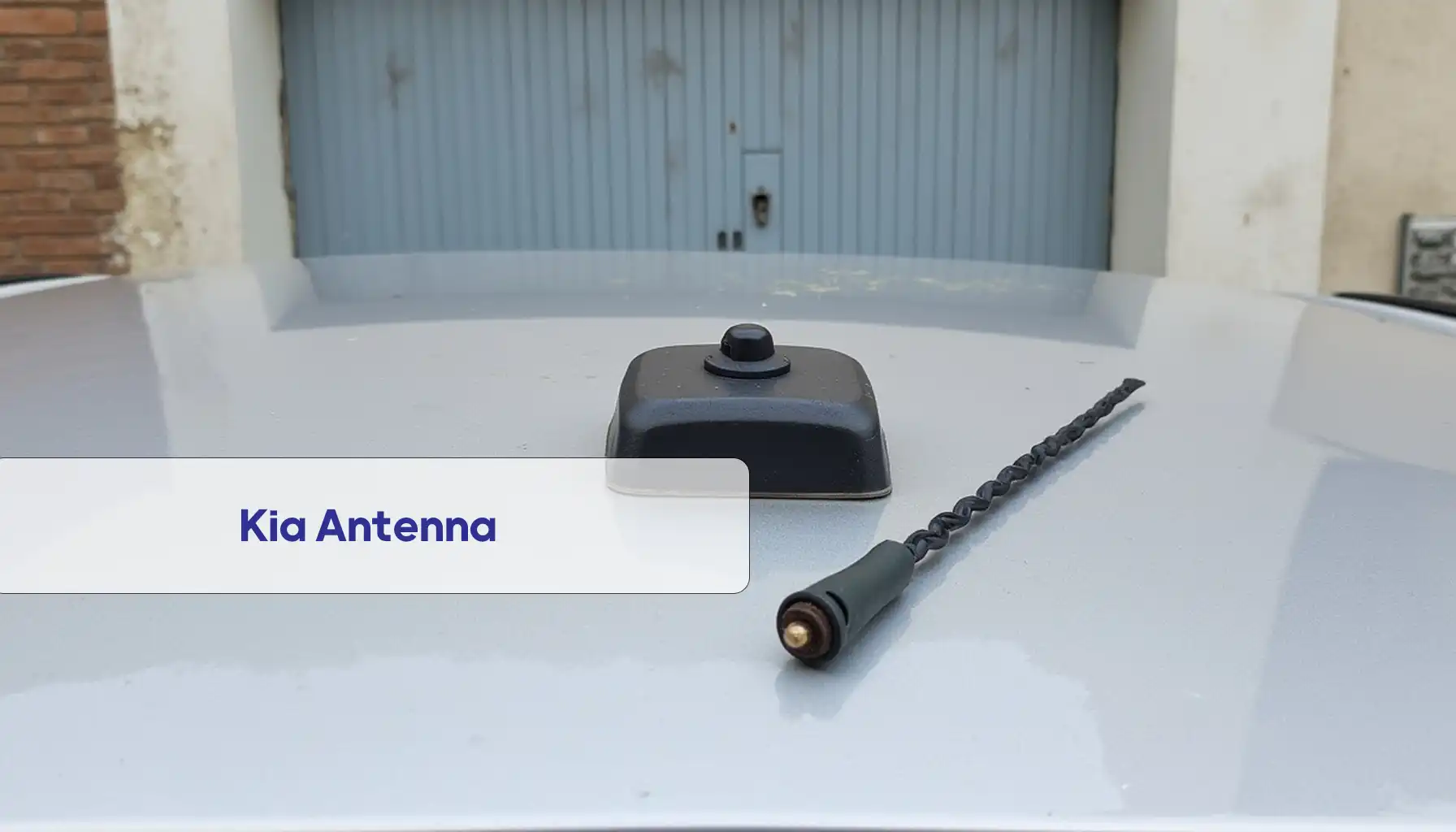Kia oil filter is one of the many components that ensure that your engine gets the best running conditions. Though small and often unnoticed, the oil filter plays an important role in maintaining your engine’s oil quality, and consequently, your vehicle’s health.
Health is critical in many ways for performance and longevity as far as Kia ownership in Dubai, the UAE, or anywhere else in the Middle East is concerned. This article will explain, in detail, everything one should know about Kia oil filters: how they work, why they are important, and when they should be changed for your Kia to run optimally.
What is an Oil Filter in Kia Vehicles?
An oil filter is important in the engine part of Kia for lubrication purposes. It assists in capturing contaminants and impurities that engine oil accumulates while circulating inside the engine. Oil is essential for an engine to work properly. It reduces friction, limits wear and tear on moving parts, and acts as a coolant to a certain extent by absorbing heat and dissipating it. During this process, the motor oil does accumulate small particles, tiny metal shavings, and dirt, which over time may start to clog and reduce the effectiveness of the motor.
They get caught in the oil filter, and the only thing that will pass through the engine is clean oil. In return, this prevents corrosion and wear in all crucial parts of the engine. In Kia vehicles, design and efficiency in the oil filter are meant to meet the particular demands the engine has; hence, it assures complete efficiency and life. Using an appropriate oil filter in a vehicle will be important for best performance and preventing costly repairs from unfiltered contaminants that cause engine damage.
Are Oil Filters Universal?
Considering there are quite a few choices around oil filters, many would think if oil filters are universal or no. Simply, the answer should be no-oil filters are not universal, especially when talking about cars such as Kia, which require highly specific engineering. Every different model has different specifications concerning oil pressure, temperature, and flow rate inside the engine, making a “one-size-fits-all” oil filter risk either damaging the engine or not performing as required. Due to large differences in something as minuscule as size, filtration efficiency, and construction, Kia vehicles do have a call for filters matched to their particular requirements. The oil filter for Kia is made in such a way that it is able to correspond with the design of the Kia engine and oil system.
Poor filtration and reduced flow of oil or, in the worst case, a complete failure in the engine will be experienced with an inappropriate or universal oil filter. Hence, always consult the Kia expert or go through your Kia’s manual for the best filter fitting for the car. If you shop from e-commerce websites like Arsintrading.com, the selection of Kia oil filters according to the model of your Kia will definitely ensure that the product will be to the exacting quality standards set by Kia.
Which Oil Filter Should I Use in My Kia?
First, it is pertinent to ensure that the type of oil filter used in the vehicle is correct. Some oil filters are recommended by Kia due to extensive testing, ensuring the compatibility, efficiency, and durability that it needs in an oil filter. Most Kia models recommend a high-quality filter designed especially for Kia vehicles because these filters are tested to bear the rate of flow, pressure, and impurities the engine goes through.

OEM oil filters are, on many occasions, the best because they meet all Kia’s factory specifications. All OEM filters promise to fit right and filter optimally, something that might not always come from an aftermarket filter. While there may be good-quality aftermarket filters that fit your Kia model, the use of an OEM filter means you are keeping up with your factory standards in your vehicle. In our catalog at Arsintrading.com, you will be taken through a wide range of top-quality OEM and the best aftermarket Kia oil filters to suit your needs confidently with every purchase.
What Oil Filter Does Kia Recommend?
OEM oil filters are highly recommended by Kia and designed specifically for Kia models. This filter has been through very strict tests, so the Kia standard can be met whereby they can handle the particular flow and filtration needs of the engine. With a recommended oil filter from Kia, you can rest assured that your engine is well-protected against contaminants and dirt in the name of maintaining stability in oil pressure and prolonging engine life.
For instance, each of Kia Soul, Sportage, and Sorento has its own kinds of oil filters, best fitted to the characteristics of the engine. With the recommended oil filter from Kia, you can avoid any of the usual risks caused by using generic or mismatched filters, such as leaks, low oil pressure, and even possible engine damage. Picking up the proper Kia oil filter would also mean that one wouldn’t have to be worried about how long the filter is going to last or how well it’s going to put up with the extreme temperatures in regions such as Dubai and the Middle East.
Can Oil Filter Affect Oil Pressure?
Yes, the oil filter can effectively alter the oil pressure of your Kia. The oil filter controls the flow of oil through the engine. If it is clogged or poorly made, then it might restrict oil flow and result in low oil pressure. Low oil pressure may very well serve as a warning signal that something is wrong with either the oil filter or the oil system of the engine in general. If oil cannot flow freely through the filter, the loss of pressure lessens the lubrication of the parts and may even cause damage to the engine.
So, a faulty or clogged oil filter can also be another potential cause of excessive oil pressure, in that it prevents proper oil circulation, resulting in pressure build-up inside the engine. Definitely, high pressure could give way to leaks, especially in areas with seals and gaskets, causing the spilling of the engine oil and further troubles. You are thus supposed to pay much attention to your Kia’s oil pressure regularly and replace the oil filter whenever necessary.
Most Common Problems With Oil Filters in Kia Cars
The owners face some certain issues related to the Kia oil filters that make their vehicle behave terribly. Following are some of the most common issues:
- Clogging: With time and use, the filter can get clogged with debris and contaminants, which hinder the flow of oil and lower the oil pressure.
- Leaks: Oil leaks are brought about by the filter that has been incorrectly installed or one with a faulty gasket. This may eventually result in low levels of the engine oil.
- Failure of the bypass valve: If the Kia oil filter becomes too clogged, then the bypass valve opens so the oil flow can be maintained. The result is that it protects the engine against starvation but also circulates unfiltered oil that is able to abrade the engine components.
- Low-Quality Filters: Poor-quality filters result in poor filtration and an inability to control the pressure of the oil. Because low-quality filters are made with cheap material, it will wear out much quicker or may even fail at its job of catching contaminants that would prove harmful to the engine.
In light of this, such problems, if noticed, should be attended to as quickly as possible with a good-quality Kia oil filter, the replacement time for which should also be done on appropriate intervals to keep the engine always running and without disruption.
How to Fix Kia Oil Filter Problems
The solutions to oil filter problems in a Kia involve both preventive and corrective actions. Firstly, get a good-quality, well-reputed Kia oil filter that is meant for the particular model. Then periodically check the oil level and pressure in order to catch any problem early on. In case of leak or loss of oil pressure, the oil filter should be checked for blockages or any signs of damage.
In the event of suspicion of clogging, replace the oil filter with a new one instead of cleaning the old one to ensure optimal filtration. Installation of the filter is also crucially important, as a badly installed oil filter can result in leaks. Refer to your Kia manual for this purpose, or consult with a certified Kia mechanic in case of doubt. By using arsintrading.com, a wide variety of Kia oil filters can be sourced to make it easy to get the right replacement your vehicle will need, with expert advice if required.
When Should Kia Oil Filter be Changed?
Generally, Kia recommends a change of the oil filter every time you change the oil, which is around every 10,000 to 15,000 kilometers (6,200 to 9,300 miles) for most Kia models. However, driving conditions are always so hard in the Middle East, with high temperature levels in addition to the dusty areas that increase stress on the oil filter. Under such conditions, it is wise to replace the oil filter more frequently, such as every 8,000 kilometers (5,000 miles), for better performance of the oil filter.

Driving habits also affect how often the oil filter should be changed in your Kia: most driving, such as stop-and-go driving, hauling heavy loads, and making short trips that do not let the engine get warm, may call for changing the oil filter more often. Changing the Kia oil filter on schedule ensures optimum oil flow for long-term engine protection and performance.
Conclusion
Although tiny, it is highly instrumental in maintaining the health of your Kia’s engine. For Kia owners in Dubai, the UAE, and wider Middle East, where traffic is generally characteristic, an investment in a high-quality, model-specific oil filter can enable the running of their automobile in efficiency toward increased lifetime with great reductions in chances of costly repairs.
By understanding how the Kia oil filter works, the type of problems it can develop, and why it needs regular changing, you are taking necessary measures to protect the performance of your vehicle. With a good filter installed and with good routine maintenance, the Kia is ready for urban driving as well as desert driving in the Middle East.



